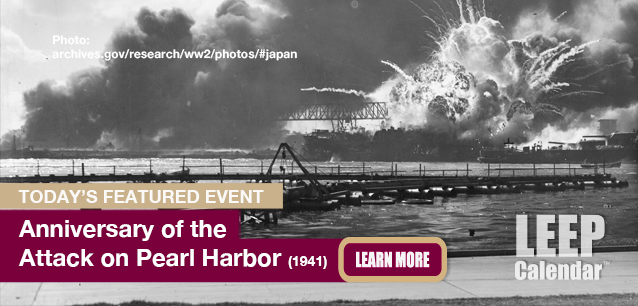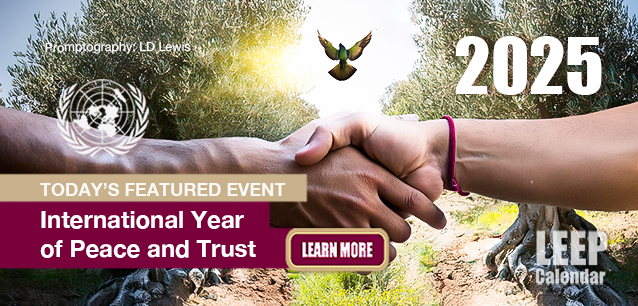 AD
AD
Today is: December 07
Scroll to explore events active on this date.
LEEP INK FEATURES

August? Absolutely!
In August, we live through the Dog Days of Summer. It's hot and often humid, and those who can leave for better climates do. Down south, winter is in full force. August is also known as "the ...

In The Heat of July: July 2025 Events
Is it hot enough (or cold enough if you're below the equator) for you yet? There is actually a day for that! Like every month, I pick a diverse collection of events you may or may not know about. This ...

May Blooms: Events in May 2025
Along with October, May is one of the most densely packed months of the year. It's before the summer humidity and the last whole month of the school year. The weather is warming in t...
About the Sabra and Shatila Massacre
Civil Rights , Politics
Middle East/West Asia
Ends: Sep 18, 2025
DESCRIPTION:
Today marks the 40th anniversary of the Sabra and Shatila massacre of 1982, which killed 3,000 people, and wounded thousands more over 48 hours. It was a continuation of the Israeli invasion of Lebanon that began on June 6, 1982.
The Sabra neighborhood and Shatila refugee camp rest in West Beirut, Lebanon. They were and continue to be home to a large population of Palestinian Christian and Muslim refugees, many of whom fled the ethnic cleansing of Palestine by Jewish terrorist groups in 1948 and the Israeli military attack in 1967. To this day, Palestinian refugees do not have permanent status in Lebanon, despite up to 75 years of residency.
The massacre began at 18:00 local time on September 16, 1982, following the Israeli seizure of West Beirut. Right-wing Lebanese Christian Phalange forces, operating under the direction of Israeli Defense Minister Ariel Sharon and Israeli military commanders, swarmed the neighborhood with guns, knives, and other weapons. The operation proceeded, massacring men, women, and children in the streets, their homes, hospitals, and the stadium. Israeli forces, bolstered by the militia, prevented terrified civilians from fleeing. In further depravity, the Israeli military lit the killing fields each night by filling the air with flares and artificial light to facilitate the killing. The streets literally ran with blood.
The massacre received swift and severe international condemnation. The UN General Assembly voted unanimously (with 12 abstentions) to pass a resolution that the Sabra and Shatila massacre constituted "an act of genocide." Genocide is a war crime.
Sharon, now a war criminal, was forced to resign as Israeli Defense Minister following the massacre. Israel's Kahan Commission concluded he was personally responsible for the genocide and that the military was aware of it and chose to allow it.
The admonishment would be temporary. In 2001, Israel's citizens elected Sharon Prime Minister, and the General directing forces during the massacre, Amos Yaron, would become the Director-General of the Israel Defense Forces.
The atrocities committed at Sabra and Shatila continue to traumatize its survivors. Decades later, the painful memories of the massacre persist, and reparations have never been made. The tactics used on Sabra and Shatilla continue every few years in the Gaza Strip and West Bank, both still under Israeli occupation.
_____
VIDEOS
SUPPORTING DOCUMENTS
Currently, this event does not have supporting documents.
ADDITIONAL IMAGES
Currently, this event does not have supporting images.
Where would you like to go now?
 AD
AD































































/footer-logo.svg)
